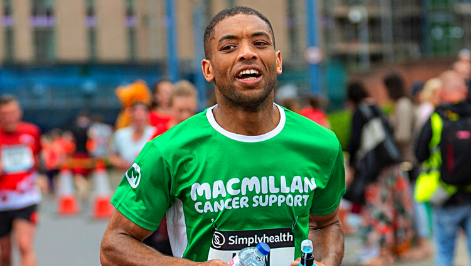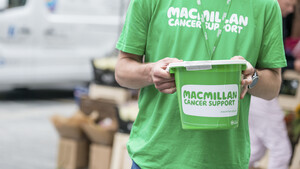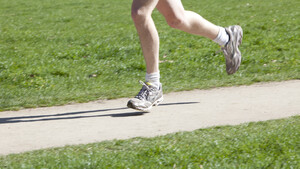
10K Charity Runs
10K events
-
Great Manchester Run 10K18 May 2025Manchester M2 5DB
-
Great Birmingham 10k4 May 2025Birmingham B1 2EP
-
Edinburgh Marathon Festival 10K24 May 2025Edinburgh EH1 3DG
-
Women's 10K Glasgow15 Jun 2025Glasgow City G3 8RS
-
Men's 10K Glasgow15 Jun 2025Glasgow City G3 8RS
-
Leeds 10K15 June 2025Leeds LS2 3AD
-
Scottish 10K17 August 2025Edinburgh EH1 3DG
-
Thames Moonlight 10 Walk12 September 2025London SW15 2NF
-
Men's 10K Edinburgh21 September 2025Edinburgh EH1 3DG
-
Women's 10K Edinburgh21 September 2025Edinburgh EH1 3DG
-
Great Scottish Run 10K05 October 2025Glasgow City G2 1DY
-
Run Bournemouth Supersonic 10K12 October 2025Bournemouth BH2 5AA
10k FAQs
-
How far is a 10K race?
A 10K race is:
- 10,000 metres
- 10 kilometres
- 10,936 yards
- 6.2 miles
- 25 laps on a 400 metre running track.
The 10k run is the happy medium between a 5K fun run and a half marathon. It’s also the country’s most popular type of race. It attracts beginners, recreational runners and advanced competitors.
-
Can a beginner run 10K?
If you’ve already completed some 5Ks and are keen to progress, then a 10K run for charity may be right for you.
For most people, running a 10K is the next step after a 5K race. The 10K is a popular distance among beginners and advanced runners.
People who take up 10K races are considered long distance runners. However you do it, completing a 10K is an incredible achievement which you should be proud of! -
What is the average time to run a 10K race?
Your age, sex and fitness levels can influence how long you take to run a 10K. Your overall musculoskeletal health can also influence your 10K run time.
As a beginner, you may expect to meet the finish line between 60-80 minutes.
If you are reasonably fit, you could run a 10K race between 50-70 minutes.
Advanced runners may find they complete the 10km in 43-50 minutes.
The current world records for the 10,000m run on the track are held by:- Joshua Cheptegei at 26 minutes and 11 seconds.
- Letesenbet Gidey at 29 minutes and 1 second.
-
How long does it take to go from 5K to 10K?
It can take around 6-8 weeks to adjust from 5K to 10K. This depends on your goals, experience, and how consistent you are with your training and general fitness.
Check out our 10K training plans to get you started. -
Am I allowed to walk during a 10K race?
It’s not unusual for runners to take a short break during a race. Although most running events will not disqualify participants for walking, it may be worth checking in with the event organiser. For example, if your charity run is on a closed road, the road race can have a time limit.
You may also want to walk to relieve your muscles, get hydrated or find your breath. Some people choose to run in intervals to change up the pace of the running event. -
Can I wear headphones during a 10K race?
Some running competitions might allow runners to wear earphones, but it is best to check with your event organiser.
Some events give out announcements and audio cues which may be missed if runners are wearing headphones. This could also create a safety issue for yourself and other runners. You may be at greater risk of collisions and injury. -
How many calories do you burn during a 10K race?
On average, you can burn 600-800 calories during a 10K charity run. This works out at about 100-133 calories per mile. However, this will depend on your speed, your body weight and the terrain you’re running on. If you’re running fast or on a steeper incline, you will be using more energy which will mean more calories are burned.
-
What should I eat before my 10K race?
Fuelling yourself properly is important to help you get the best out of your race.
If your 10K race is in the morning, your evening meal before race day is an opportunity to build your energy store for your AM race.
Aim to eat:- Carbohydrates to keep your energy and blood sugar high. These can be found in wholegrain foods like brown rice, brown pasta and sweet potato.
- Proteins to promote muscle growth and repair. Try eggs, fish or poultry.
- Fats for metabolic fuel. A small amount features in a balanced diet and goes a long way. Seeds, nuts, avocado, salmon and mackerel are good sources.
- Vitamin and minerals to help maintain bone strength and turn food into energy.
We have lots of information on preparing your body for your run for charity.
-
What is a 10K race pace?
A 10K race pace is the running speed you can steadily hold for the whole 6.2 miles.
Your pace can depend on your speed, your body weight, the terrain you’re running on and even the weather! It may take some time to figure out what your average pace might feel like for you, so use your pre-race training to gauge this. You can use an app such as Nike Run Club or Strava, which can guide you on working out your 10K pace.
For most first-time runners, the 10K race is when you may start to think about endurance rather than speed. This distance is when most runners will have to think about regulating their pace to meet the finish line. -
What should I wear while running my 10K race?
Make sure your running shoes are properly fitted and are well worn in a few months before your race. You’ll also need to consider the weather on your 10K race day.
If it’s hot, you could wear:- A technical running vest or t-shirt
- a cap or visor
- sunglasses
- sunscreen
- Lycra shorts.
If it’s cold, you may want to wear:
- a long-sleeved wicking t-shirt or thermal top
- running leggings
- a wind-proof running jacket
- gloves
- long socks.
Comfort is key, so make sure you wear what’s best for you in the weather conditions.
Check out our full range of Macmillan running kit. -
What should I eat after 10K?
A 10K race is taxing on the body and you will need to refill after this kind of long, strenuous run. Your post-run intake should:
- replace glycogen in the liver and muscles. Glycogen is the energy stored in your body that fuels runs.
- repair micro-tears in your muscles with proteins.
- replenish lost minerals, mineral and electrolytes.
Recovery bars are quick at delivering protein and carbohydrates right after you cross your finish line and are great for keeping you going until your next meal.
-
Should I rest the day after a 10K?
Good advice is that for every mile that you race, allow for one day of rest. In this case, you should take up to 6 days’ rest before returning to training.
When you do get back to running after you’ve rested, keep your pace easy. You may want to do some low-impact exercises like swimming or weights to keep fitness up and make sure you’ve had a chance to recover.
























